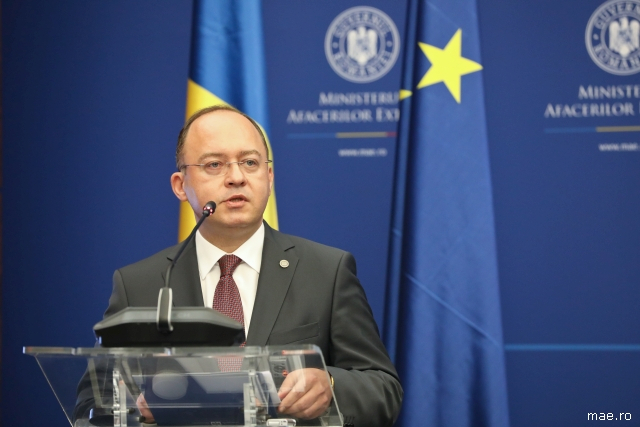Security Threats in Romania’s Neighborhood
The security threat seems to have awakened to a rough reality most of Romania's population

Corina Cristea, 11.02.2022, 02:27
Against the situation on the Russian-Ukrainian border, the security threat seems to have awakened to a rough reality most of Romania’s population, according to Remus Stefureac, a political scientist. He was citing a poll run in January by the institute he leads, INSCOP Research. The poll indicates that the confidence that Romanians have in NATO is right now around 60 percent – a first in the recent history of polls run by the institution, Remus Stefureac told Radio Romania. 70% of Romanians believe that NATO would defend Romania in case of a conflict generated by the recent tensions. The prospect of leaving NATO is supported by an extremely thin margin of Romanian society. Over 75% of Romanians are not even considering this issue. At the same time, a pro-Western orientation, meaning towards NATO, the US, and the EU, is dominant amongst the population. Over 80% of Romanians believe this is the natural direction, as opposed to the 10% that are Eastern oriented. Political scientist Remus Stefureac believes that these figures are the result of how close the conflict is to the country’s borders:
“We are talking about a conflict in the proximity of Romania’s borders, a conflict that is the focus of all relevant governments, around here or around the world. We can see very clear positions, on Russia’s side, on the one hand, which made some quite bizarre demands for NATO troops to be pulled out from Romania and Bulgaria. On the other hand, we have firm positions on the side of North Atlantic representatives, such as the US and French presidents, regarding supplanting troops on Romania’s territory, precisely in order to strengthen the already very solid security guarantees that we enjoy as a member of NATO. Of course, the conflict and the tensions on the Russian-Ukrainian border are by no means good news, not from a general military security point of view, and not the economy. Financial markets have already reacted, and energy prices will be affected by this conflict. It is absolutely necessary to have talks and decisions at the highest levels of the Romanian state in terms of security management. In case fighting breaks out, bigger or smaller, we need to consider being faced with a wave of refugees, and to consider how it is to be dealt with during the cold season. I don’t think that military conflict is probable between a NATO state and Russia, I think it’s out of the question, but there may be some consequences that have to be managed in an integrated manner, and only Higher Defense Council of the country can handle that.
The Council has already convened, and President Klaus Iohannis reiterated the solidarity with NATO’s defensive position, and support for increased allied presence in Romania. Of the 1,000 troops that the US is sending to the country, 100 have already landed. Arrived from Germany, they will prepare for the arrival of the full contingent, and the initiative is aimed at strengthening NATO’s eastern flank. We see a series of conditions that Russia has insisted on, which aim at changing the parameters of the European security architecture, as explained by Foreign Minister Bogdan Aurescu:
“We are open to dialog, and this is the position I took, along with my NATO colleagues, at the extraordinary meeting of foreign ministers. This is because this is part of the so-called dual track approach that NATO has taken with Russia. It is an approach that on the one hand combines deterrence and defense, and on the other encourages dialog. Romania’s perspective, as we presented it, is in support of this dialog, but at the same time we have to take into account that this dialog must be based on a series of firm and credible deterrence measures. What we need is a concrete, practical deescalation in the field, we need to see the withdrawal of Russian troops and materiel, and, at the same time, we need to see a stop put to the threat of the use of force. This aspect is unacceptable in terms of international law, and the principles, values, and norms that establish what we call the rule based international order.
Meeting in Brest, France, the EU defense ministers also discussed the security situation in Urkaine and its border with the Russian Federation. In his intervention, Romanian Defense Minister Vasile Dincu reiterated his preoccupation with the Russian military presence in the eastern neighborhood. He said that, in addition to other hybrid actions, such evolutions are part of a broader Moscow strategy, aiming at broadening its influence in areas of interest, while at the same time limiting the European prospects of states in its neighborhood.






























